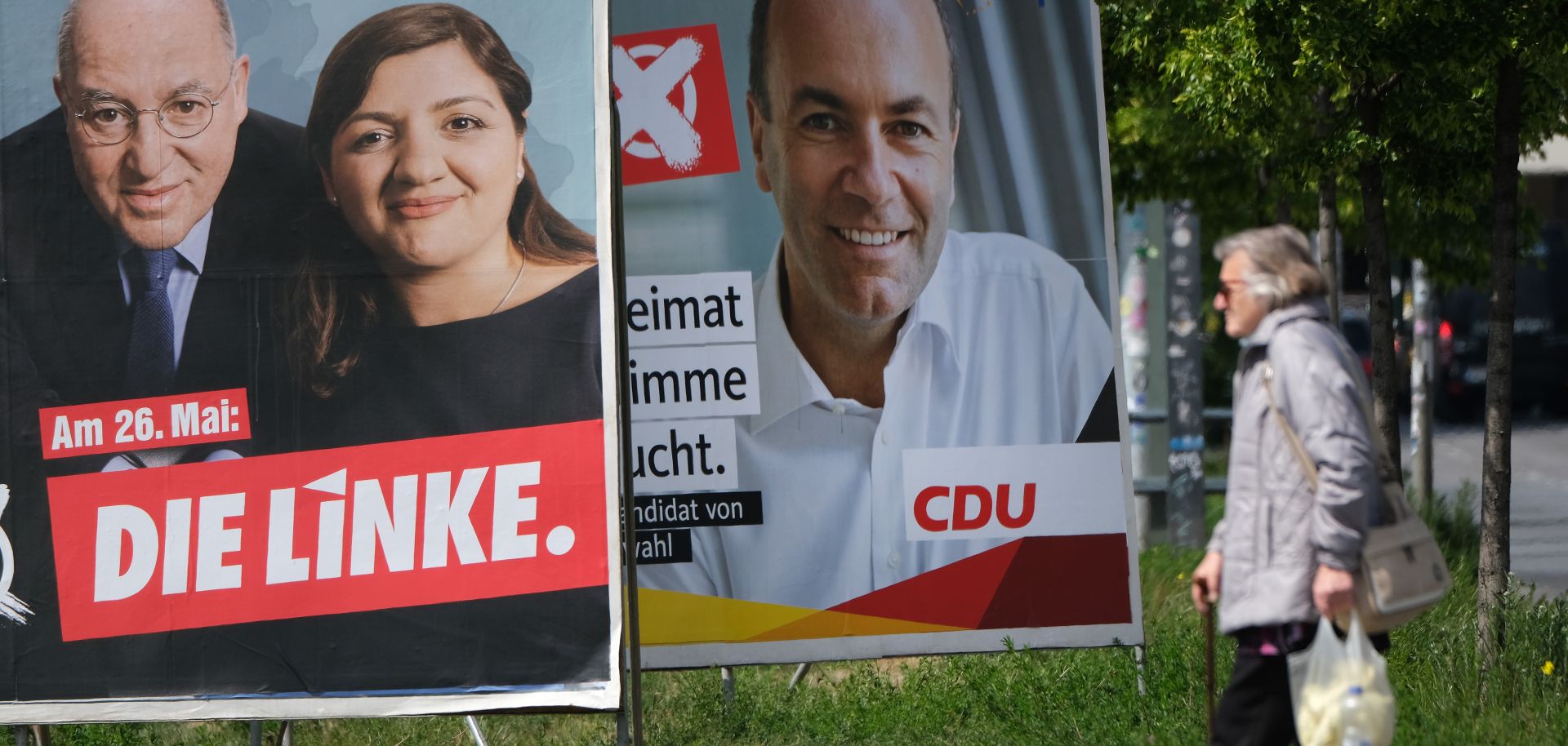ASSESSMENTS
European Parliament Elections Mark the End of EU Legislative Consensus
May 22, 2019 | 09:00 GMT

A pedestrian passes election campaign posters of the left-wing Die Linke and of the center-right German Christian Democrats on May 13, 2019, in Berlin.
(Sean Gallup/Getty Images)
Highlights
- European Parliament elections will result in a more fragmented legislature, which will force the long-dominant two largest center-right and center-left parties to reach compromises with smaller forces to pass legislation.
- A more fragmented parliament will slow the EU legislative process, and could kill legislation by diminishing the ideological alignment between the European Parliament, which represents EU voters, and the European Council, which represents EU governments.
- This will lead to greater uncertainty about the policy direction of the European Union as investors, companies, financial markets and interest groups will find it harder to foresee the outcome of the legislative process.
Subscribe Now
SubscribeAlready have an account?
